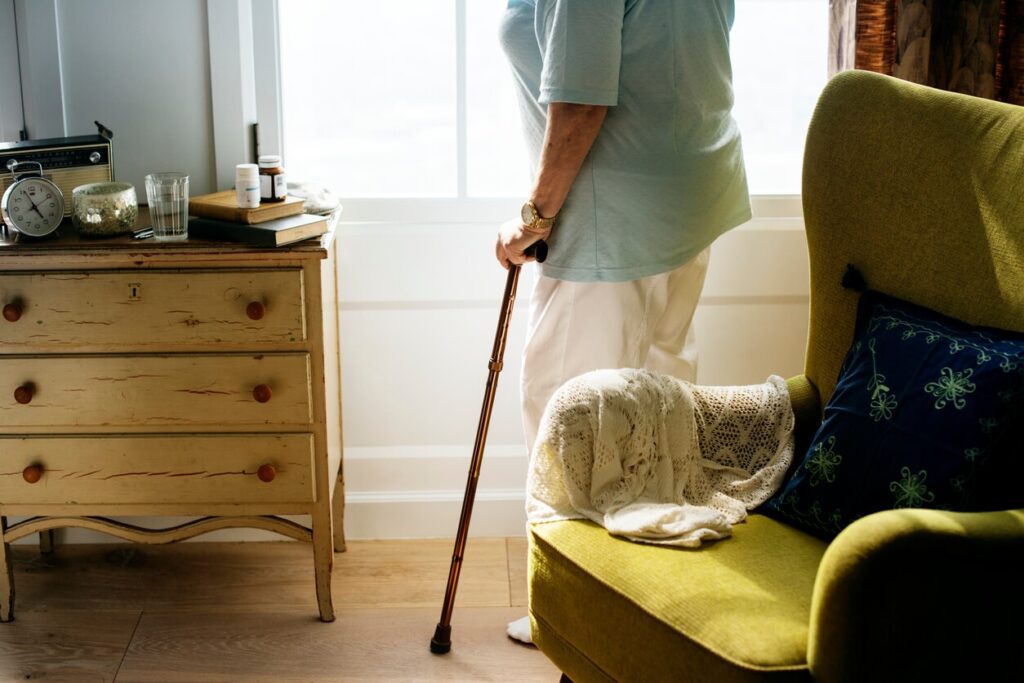Suing for Nursing Home Neglect in Tampa After COVID-19 Contraction
Suing for nursing home neglect in Florida after COVID-19 contraction may be an option for a Coronavirus victim. Testing positive for Coronavirus may be the result of nursing home abuse and neglect. That can be the basis of legal action for compensation, and you have the right to assistance from a COVID-19 nursing home neglect attorney

COVID-19 Nursing Home Neglect Lawsuit
The basis for a COVID-19 nursing home neglect lawsuit is that the nursing home didn’t take enough steps to prevent the spread of Coronavirus. When COVID-19 spreads through a nursing home, the actions that the care facility took to prevent the spread of Coronavirus and protect residents become very important. If nursing homes didn’t do enough to improve sanitation and social distancing procedures to protect their residents, the nursing home might be liable.
Viruses were a known risk in the State of Florida long before the spread of COVID-19. Individuals who live in care facilities may be especially at risk because of their age and prior health conditions. Although the novel Coronavirus is a new concern in the United States, viruses are not. Residential care facilities have long been aware of the need to protect their residents from viruses and other infectious diseases.
Contact our experienced Tampa personal injury law firm today for your confidential consultation so we can start fighting for the compensation you deserve.
How to Bring a COVID-19 Nursing Home Lawsuit
To bring a COVID-19 nursing home lawsuit, you file a legal action in the appropriate court. This is typically where the victim lives, but it might also be at the headquarters of the care facility. In some cases, it might be appropriate to pursue your claim through demand letters in advance of a formal legal proceeding. Your attorney for COVID-19 lawsuits can help you decide if negotiations and demand letters are an appropriate pre-suit measure.
Legal Standards to Win a COVID-19 Nursing Home Lawsuit
There are both statutory and common-law legal standards for COVID-19 nursing home lawsuits. Any circumstance where the care facility doesn’t use a reasonable standard to protect residents from COVID-19 transmission provides the legal grounds for a claim. The standard is based on what is reasonable. To know what is considered reasonable, you have to look at the entire set of circumstances, including when the facility became aware of the threat of Coronavirus and what they did to introduce safety measures into their facility. The case depends on the exact details present in the case.
To win your case, you must gather evidence. You demand to know what safety and sanitation measures the care facility took in response to the virus. In the discovery process, you can take depositions of witnesses who are reluctant to provide information. Medical records and expert testimony can also be important. An experienced nursing home abuse attorney is critical in guiding you through a legal strategy and aggressively building your case.
COVID-19 and the Florida Nursing Home Resident Bill of Rights
The Nursing Home Resident Bill of Rights may also play a role in a COVID-19 lawsuit. Florida law 429.28 outlines the fundamental rights that every person has when they live in a group home. These rights are in addition to the rights available under common law negligence.
Rights guaranteed under the Resident Bill of Rights include a living environment that’s free of abuse and neglect. However, a care facility must also provide access to the outdoors and exercise. When the care facility doesn’t follow the Bill of Rights, the COVID-19 lawsuit case may be based on the violation as well as any common-law principles that may apply.
Resident Bill of Rights Is Not Limited to the Lifetime of the Patient
The Florida courts have had several opportunities to define and clarify resident rights in nursing home abuse and neglect cases. In Knowles v. Beverly Enterprises, the Florida Supreme Court addressed when a victim representative may bring an action for negligence or violation of the Resident Bill of Rights. The court clarified that a victim’s representative may bring an action against a care facility even after a victim passes away from unrelated causes. The Bill of Rights violation survives the resident’s death. A Bill of Rights cause of action is not limited to the life of the patient.
In the Knowles case, the victim had hip replacement surgery and then lived in a care facility. While in the care facility, the victim developed bed sores and other ailments. The man was transferred to another facility and later died.
The lower court ruled that the man’s representative could no longer bring a case for a violation of the Bill of Rights because the man was deceased. However, the Florida Supreme Court disagreed. The Florida Supreme Court ruled that a cause of action under the Resident Bill of Rights is not limited to the lifetime of the patient.
For a COVID-19 victim, that means family members can continue to seek justice on behalf of a loved one even if that person passes away from the virus. The Knowles case is one of several Florida Supreme Court cases that rules in favor of a victim in a nursing home abuse and neglect case.
Contact our experienced Tampa personal injury law firm today for your confidential consultation so we can start fighting for the compensation you deserve.
COVID-19 Nursing Home Abuse Attorneys
Our COVID-19 nursing home attorneys are accepting new clients. If you or a loved one contracted COVID-19 while living in a residential home in Tampa, you may qualify to receive financial compensation. The claims process doesn’t have to be stressful or scary. Contact our experienced Tampa personal injury law firm today for your confidential consultation so we can start fighting for the compensation you deserve.
